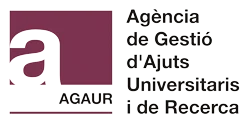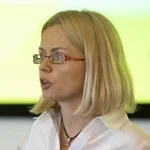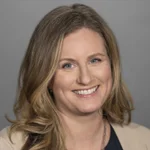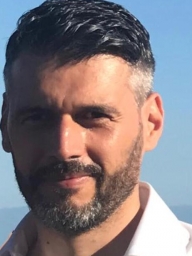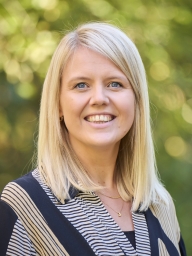EEI - SCOPES Workshop - Socio-Cognitive Perspectives in Entrepreneurship and Strategy
1-2 July 2024 · Esade Business School, Barcelona (Spain)
About this workshop
The SCOPES Paper Development Workshop aims to create an interactive platform for scholars dedicated to deepening our understanding of how social structures impact entrepreneurial and strategic decision-making processes. The workshop is designed to facilitate rich discussions across four subthemes: categories and categorization, cultural resources, structures of inequality, and status and hierarchies (described in detail below). Each subtheme will consist of three paper presentations, enriched by insights from a keynote speaker who will also act as a discussant for the session papers.
To encourage the involvement of emerging scholars, we have reserved one presentation slot in each session specifically for PhD candidates for whom this call is intended. Esade is committed to supporting the involvement of these emerging scholars by covering travel expenses (up to €200) and providing accommodation. There is no workshop fee; however, due to the limited number of available slots, places are limited to the papers selected by the organizing team.
Keynote speakers
Day 1, July 1st
|
Session 1 - Categories & Categorization
Balazs Kovacs, |
Session 2 - Cultural Resources
Michael Lounsbury, |
Day 2, July 2nd
|
Session 3 - Structures of Inequality
Olenka Kacperczyk, |
Session 4 - Status & Hierarchies
Amanda Sharkey, |
Organizers
|
Matteo Prato, Department of Strategy & General Management, Esade |
Annelore Huyghe, Department of Strategy & General Management, Esade |
Workshop Sessions
The workshop will be organized into four thematic sessions, each led by a Discussant/Keynote speaker:
July 1st |Morning Session | CATEGORIES & CATEGORIZATION
Keynote Speaker/Discussant: Prof. Balazs Kovacs
Categories play a vital role in demarcating boundaries and shaping people’s perceptions. Entrepreneurs can position their ventures within specific categories to attract resources, establish legitimacy, and distinguish themselves from competitors. Yet, this categorization can also impose constraints, forcing ventures to adhere to established prototypes or risk category atypicality, which may diminish their appeal to investors and/or consumers. In this session, we will explore ongoing research on how entrepreneurs navigate the tension between conforming to the expectations of a category and (re)shaping categorical boundaries or positioning themselves agentically. We invite empirical work that enriches, but is not limited to, our understanding of the following areas:
- Strategic Categorization: Exploring the tactics organizations can deploy for self-categorization to meet external audiences’ expectations and receive favorable evaluations.
- Drivers of Category Evolution and Demise: Investigating the mechanisms behind the emergence, transformation, and decline of categories or their failure to emerge.
- Dynamics in Value-Laden Categories: Unpacking how entrepreneurs navigate categories with ideological or moral principles, and the implications for identity development, stakeholder engagement and competition.
- Authenticity and Intermediation in Categorization: Examining organizations that may appear inauthentic in their category claims and the role of intermediaries.
- Audience Heterogeneity and Expertise: Studying how the multiplicity of audiences and distinct knowledge levels affect the evaluation of (hybrid) organizations.
Participant program TBC.
July 1st | Afternoon Session | CULTURAL RESOURCES
Keynote Speaker/Discussant: Prof. Michael Lounsbury
Cultural resources, encompassing elements like institutional logics, discourse, and language, are foundational to the entrepreneurial journey. Entrepreneurs craft narratives from these elements to guide external audiences in their judgment of new ventures’ credibility. Such entrepreneurial identity stories are a vital tool for entrepreneurs in their legitimation and resource acquisition efforts. Moreover, these narratives pave the way for organizational and institutional innovation. This workshop session will unite researchers interested in the cultural processes that shape and are shaped by entrepreneurial actions. We welcome studies that address, but are not confined to, the following areas:
- Sources and Processes of Entrepreneurial Legitimation: Examining how entrepreneurial stories and identities are constructed, perceived, and evolved in response to cultural forces and societal expectations.
- The Role of Emotion in Cultural Entrepreneurship: Investigating how the articulation of emotions within entrepreneurial narratives can impact resource mobilization and venture perceptions.
- Effectiveness of Linguistic Framing: Understanding how entrepreneurial narratives need to be adjusted to ensure resonance across distinct audiences as well as throughout the venture lifecycle.
- Unintended Consequences of Cultural Entrepreneurship: Looking beyond the positive and short-term effects of entrepreneurial legitimacy for the development of ventures and markets.
Participant program TBC.
July 2nd |Morning Session | STRUCTURES OF INEQUALITY
Keynote Speaker/Discussant: Prof. Olenka Kacperczyk
Despite the widespread belief in meritocracy as a just system to strive for, significant obstacles to its true realization persist. Its realization is being challenged by evidence of cognitive biases and systemic inequalities, particularly against women and minorities. This workshop seeks to unite researchers investigating the origins of cognitive and structural biases, as well as the effectiveness of interventions to counteract them and diminish inequalities in the workplace and marketplace. We welcome studies that address, but are not limited to, the following areas:
- Drivers and Impact of Inequality on Career Opportunities: Exploring how workplace inequality influences individual decision-making and its assessment by others, and identifying factors that worsen or alleviate its effects on career advancement.
- Inequality and Network Dynamics: Examining the causes of unequal access to influential networks and the role of social and professional networks in exacerbating or reducing inequality.
- Bias in Diverse Evaluations: Investigating how biases might differ among investors, employers, peers, and customers and discussing strategies to mitigate inequality in different audiences’ evaluations.
- AI and Technological-Driven Inequality: Analyzing how social biases are integrated into algorithms and technology, their impact on inequality, and individuals' responses to these biases.
- Inequality Across Different Analytical Levels: Studying how biases and inequalities manifest and can be addressed at various levels, from individual choices to systemic issues.
Participant program TBC.
July 2nd | Afternoon Session | STATUS & HIERARCHIES
Keynote Speaker/Discussant: Prof. Amanda Sharkey
Status offers not only recognition and validation but also access to resources, favorable partnerships, and a perception of higher quality. Entrepreneurs and decision-makers engage in strategic actions to ascend these social hierarchies, aware of the benefits associated with high status. Yet, high status is not without its costs and risks; the effort to maintain it is substantial, and the risk to “fall from grace” for any misstep is substantial. This session will feature research on how decision-makers navigate social hierarchies and rankings. We invite research papers that address, but are not confined to, the following topics and questions:
- Emergence and Dynamics of Status Hierarchies: Investigating the origins of status hierarchies, the factors that sustain or alter them, and the impact of "status shocks" on individuals and organizations.
- Role of Rankings and Intermediaries: Examining how rankings influence economic decision-making and the role of intermediaries in shaping status dynamics within professional fields.
- Liabilities of High Status: Discuss the conditions under which high status can become a liability and strategies employed by high-status individuals to counteract potential negative effects.
- Diversity of Audience Perceptions: Analyzing how social rankings affect perceptions across different audiences and the circumstances under which these perceptions align or diverge.
- Interplay of Status at Different Analytical Levels: Exploring how status operates and impacts entities across different levels of analysis (e.g., individuals, firms, categories, countries), including the effects of status inconsistencies at different levels on behavior and evaluation.
Participant program TBC.
Guidelines & Submission
These guidelines & submission rules apply to PhD students:
- Deadline for Submission: April 26th, 2024
- Notification of Acceptance: May 1st, 2024
- Submission Format: Please submit your abridged paper as a PDF file and use standard formatting (Times New Roman, 12 pt). The document should be around 3,000 words and focus on your paper’s aim, theory, methodology, findings, and contributions.
- Session Preference And Financial Support: In your submission, clearly specify the session (Categories & Categorization, Cultural Resources, Structures of Inequality, or Status and Hierarchies) you would like to present in. If you are a PhD student and your participation is conditional to receive support for flights and accommodation, please clearly indicate so in your application.
Submit your paper via email to eei@esade.edu and annelore.huyghe@esade.edu. Please, include "SCOPES Workshop Paper Submission" in the subject line and indicate your preferred thematic session in your submission.
Venue
The SCOPES Workshop will take place in Building 3, Esade Barcelona Campus (Av. Esplugues, 92-96)
How to get there: Esade is located 15 minutes from the Barcelona-El Prat Airport by car.
The campus can be easily accessed by car or public transport from the city’s historic district or outside the city.
- Bus : City buses with stops near Esade: H4, 68, 78, 63 and 75.
- Metro : María Cristina station (L3): 500 m from Esade.
- Ferrocarrils de la Generalitat de Catalunya : Reina Elisenda (L6) station: 250 m from Esade.
Contact Information
For any inquiries regarding the workshop or the submission process, please contact Raquel Pruna-Morales (raquel.pruna@esade.edu).
Supported by:
